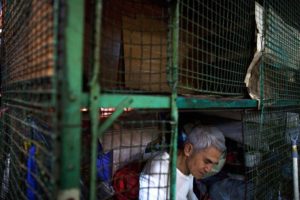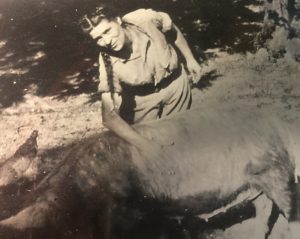
When my ship, USS Los Angeles (CA-135), dropped anchor in Victoria Bay, Hong Kong, in late 1961 our captain allowed several Chinese men to come on board at meal time to glean food from our trays.
When we finished eating we would hand our food trays to one of the foreigners and they would rake our scraps into one of several garbage cans. Uneaten mashed potatoes, for example, were saved in one garbage can, uneaten beans in another, bread went into a third can, and so forth.
They were not saving our scraps to feed hogs. If that were the case, all the leftovers would have been raked into the same garbage can.
No, they were going to serve our scraps to people.

The federal “poverty level” for a family of three in the United States in 2017 is $20,420. And, yes, don’t tell me, I know: renting a decent place to live, keeping the lights and heat on, buying clothes, paying the bills for a family of three on that kind of money, or less, is tough duty.
But when I see a U.S. “poverty level” number like that I can’t help but think about a family I saw in Hong Kong, near the dock where I boarded a tender to return to my ship, anchored in the bay.
It was nighttime and I walked past a woman with two small children. I saw her lie down on a piece of cardboard on the sidewalk, a child on each side, and pull a second piece of cardboard on top of them, for a blanket.
That’s poverty.
NOTE: A regret I still have: I went on liberty several times in Hong Kong and I saw a lot of poverty, all of which I just walked past.
Coming Friday: The Wasp Nest
